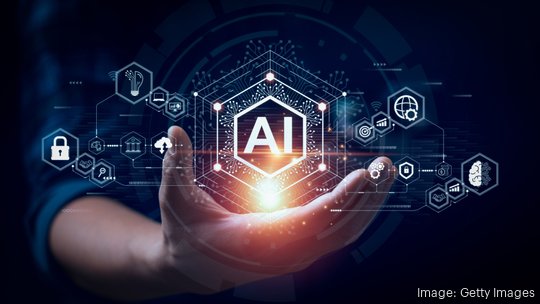
Over the last decade, cities across the country have seen their local startup ecosystems surge, siphoning the Bay Area's share of national venture capital dollars down from around 40% in 2014 to less than 30%.
It's a trend AOL co-founder Steve Case has coined Rise of the Rest — also the name of his venture capital fund that backs startups in non-traditional tech hubs with designs on tech talent and opportunity becoming more evenly distributed throughout the country.
"The era of a few superstar cities dominating the innovation economy is over," Case told American Inno in an interview last year.
A new report from The Brookings Institution highlights the need for policymakers to be similarly mindful of artificial-intelligence opportunities across the country.
According to the report, the Bay Area dominates the AI sector, but the research goes on to note that it and just a handful of other "superstar" tech cities own such a heavy concentration of AI activity that other markets could be left behind in the space if policymakers don't work to make more communities players in the artificial-intelligence race.
The Bay Area's lead in AI shouldn't come as a surprise. The market is home to AI research centers at Stanford University and the University of California, Berkeley, along with top tech firms like Meta Platforms Inc., Alphabet Inc. and Nvidia Corp.
The Brookings report quantifies the degree of the Bay Area's first-mover advantage. San Francisco and San Jose accounted for one-quarter of all U.S. AI companies in 2021, according to the research. Those cities also had about four times as many AI companies and job postings as the average value of 13 next-tier markets Brookings classifies as "early adopters" of AI.
Those "early adopters" of AI outside the Bay Area, according to Brookings, are:
- New York
- Seattle
- Boston
- Austin, Texas
- Raleigh, North Carolina
- Los Angeles
- Washington, D.C.
- Boulder, Colorado
- Santa Cruz, California
- Santa Fe, New Mexico
- San Diego
- Santa Maria-Santa Barbara, California
- Lincoln, Nebraska
Accounting for those 13 cities plus the Bay Area, the top 15 AI metro areas encompass about two-thirds of the nation’s AI assets and capabilities, according to Brookings.
When looking specifically at generative AI — the emerging slice of artificial intelligence that produces text, images and other content from prompts — a concentration of assets is visible as well. In May 2023, around 60% of new generative AI jobs were posted in the Bay Area or one of the 13 "early adopter" metro areas, Brookings said. Over the 10 months prior, just six cities — San Francisco, San Jose, New York, Los Angeles, Boston and Seattle — accounted for about half of the country's generative AI jobs.
One potential problem of clustering AI jobs and activity in a handful of cities is the brain drain that could occur from other metros, especially as the AI sector grows, Brookings said.
The U.S. should "move to intentionally promote diffusion of AI activities into new places and counter the winner-take-most geography of a critical future industry," the report said, adding that federal policies should work to "push against excessive AI sector concentration."
Some such measures are already in place. The National Science Foundation has developed a network of National Artificial Intelligence Research Institutes that provides millions to AI research at universities across the country. The Biden administration's CHIPS and Science Act of 2022 aims to invest in semiconductor research and other high-tech advancements that include AI.
"Economic growth and prosperity over the last 40 years has clustered in a few regions on the coasts, leaving far too many communities behind," the White House said in statement announcing the legislation last year. "The CHIPS and Science Act will ensure the future is made in ALL of America and unlock opportunities in science and technology for those who have been historically left out."
Even with those efforts, Brookings said more needs to be done at the federal level, including expanded AI research and development and investment in AI talent development in more regions.
"(The) hyper-concentration of AI computational and data resources — combined with the concentration of associated regional economic activity in only a few places — limits the participation of underserved people and places in AI development," the report said.



